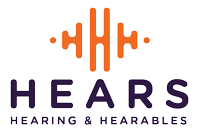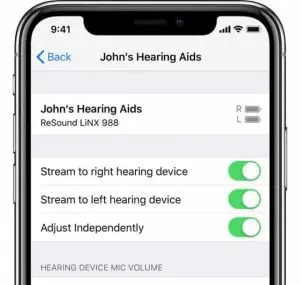Too Blind to see the Elephant? Why neuroscientists ought to be interested in Tinnitus
Journal of the Association for Research in Otolaryngology
Online publication: October 22, 2021
By: Marlies Knipper, Birgit Mazurek, Pim Van Dijk, and Holger Schulze
A review of this article and theories on tinnitus by Karen!
For those who suffer from tinnitus, or know someone who does, or is interested in this topic, you may find this article interesting. It is a pure scientific article about six possible tinnitus contributors. Each topic is defined, current research on that topic is summarized, and thoughts on how new foci of research on that topic are discussed. It is a summary of the questions and answers addressed by a panel of researchers that took place in February 2021, at the Annual Mid-Winter Meeting of the Association for Research in Otolaryngology.
First, some definitions.
People often define tinnitus as “ringing in the ear”. It is actually, any sound you hear in your ear, that does not have an external source. It could be ringing. It could also be buzzing, or pulsing, a high-pitched tone. It could be in one ear or both; sound like it is close or far away. For some, it is life-altering, while others tolerate it easily. For instance, some people need treatment and feel like they can’t live with it, while others sleep like babies even though they have ringing in their ears. Its cause is unknown, and a curative therapy for it does not exist. Let us look briefly at each of the six topics and see where the potential blind spot of past research may lie.
-
Contribution of Bottom-up and Top-down Inhibitory circuits to tinnitus?
Is the problem in the peripheral auditory system (bottom-up) or is it a central cognitive (top-down) impairment? Does bottom-up from the peripheral neural activity, trigger a top-down mechanism? Is it a two-step process? Future task: Could medications that address the bottom-up trigger prevent the top-down impairment?
-
Contribution of Attention to Tinnitus and Its Relation to Long-term Habituation and Resilience.
Numerous studies report impaired or altered executive attention, selective attention, and working memory in chronic tinnitus. The negative emotions experienced during tinnitus lead to a consumption of cognitive resources: increased vigilance is given to the tinnitus tones. Future tasks: Researchers may reconsider how individual environmental or hereditary differences in attentional/cognitive states could contribute to suffering more or less from tinnitus tones.
-
Contribution of Stress to Tinnitus and Its Link to the Limbic System and Environmental Factors.
There is a growing list of studies that show a close relationship between distress and tinnitus. The presence of insomnia, hearing distress, and anxiety are the best predictors of tinnitus severity. It is important to distinguish between oxidative stress, stressful acoustic trauma, and mental stress, which has not been considered adequately. Future tasks: understand how bottom-up mechanisms may be linked to the role that distress plays in tinnitus.
-
Contribution of Non-identified Sub-entities of Tinnitus to Current Controversial Views on the Neural Correlate of Tinnitus.
Studies of patients with tinnitus with hyperacusis and patients with tinnitus but without hyperacusis, suggest that there may be sub-categories of tinnitus. You will recall that hyperacusis is an exaggerated reaction to some sounds. For instance, clanging silverware will be hardly noticed by some, but will be irritating, and even painful to others. Is it possible that for patients with tinnitus and hyperacusis, the enhanced distress level they exhibit affects wider frequency ranges? Future task: Consider that in patients with tinnitus and hyperacusis parallel bottom-up changes exists that differentially affect top-down circuits.
-
Contribution of Maladaptive Information Transmission to Tinnitus?
The brain is constantly trying to optimize information transmission from the periphery into the brain. Some believe that a brain is a prediction machine that informs its memory-based predictions through sensory updating. So, tinnitus is the result of a prediction error between the predicted and the actual auditory input. Future task: Could tinnitus be a side effect of the brain’s effort to improve hearing?
-
Contribution of Deafferentation to a Tinnitus Precept?
Deafferentation is the disruption of sensory nerve impulses by destroying or injuring the sensory nerve fibers. Is tinnitus caused by damage to the central auditory system, perhaps triggered by central deafferentation (probably mostly due to cochlear damage) or is it in the auditory cortex? Future tasks: The need to challenge the widely-held thought that the conscious percept of an auditory stimulus required a proper maturation of a baseline.
-
Future therapy approaches:
Look at cognitive behavioral therapy; a brainstem auditory implant; vagus nerve stimulation may have too many side effects; diet and physical activity, and acoustic stimulation are a few of the more promising areas of therapy development.
Our professionals will help you look at the big picture, and the whole body awareness, and try to find a type of therapy that works with your lifestyle, predicaments, and how tinnitus presents to you. If you are interested in reading this paper or want to talk to us about therapy, please do so. We are happy to help and hear from you.
Cheers,
A review of the study by Authors: Rafay Kjan, Bradley Sutton, Yihsin Tai, Sarah Schmidt, Somayeh Shahsavarani, and Fatima Husain
Published Dec 3, 2021 in “Scientific Report”
We have written about theories on tinnitus in the past, but there is research being done every day around the world, and we want to keep you informed of what is found.
What is tinnitus?
For those unfamiliar with tinnitus, it is the perception of sound (a ringing, buzzing, or other sound in one or both ears) in the absence of an external source. Sufferers “hear” the noise, but others do not. It can be acute or chronic, and its severity can vary from mild to severely bothersome. That severity can change over time. Some people get used to it and thus report a decrease in symptoms. Others say the noise gets louder or more frequent over time. The cause is unknown and while it cannot be cured, it can be managed.
That was the purpose of this study: to learn how to manage tinnitus.
The authors felt that a greater of understanding of the nerve, or neural, mechanisms underlying the disease was needed before more effective therapies could be developed. However, these changes experienced by the sufferers made it difficult to account for such variations in a research study. The various theories on tinnitus lead the authors in several directions. One cause of tinnitus has been blamed on changes in the peripheral and/or central nerve pathway for hearing. Another theory blamed hearing loss for the development of tinnitus.
Many people who suffer from tinnitus also have hearing loss.
Tinnitus often occurs with other disease processes, like hearing loss. Tinnitus and hearing loss have complex relationships. A majority of tinnitus sufferers have decreased hearing sensitivity, but only about half of those with clinically diagnosed hearing loss also have tinnitus. Some believe that because hearing loss deprives a system used for stimulation (we constantly “hear” something), the tinnitus “sounds” fill that gap. However, that does not explain why about 20% of tinnitus sufferers have “normal” hearing and about 50% of those with hearing loss do not develop tinnitus. Complicated, to say the least.
The study hoped to identify objective biomarkers for tinnitus and to investigate anatomical connectivity changes within the white matter of the brain (where the nerve fibers are located) that may be associated with tinnitus. The study authors believed that they would be able to detect distinct pattern changes in the nerve pathways attributable to either tinnitus or hearing, or both (if both conditions were present). This turned out to be true. The study suggests the possible existence of tinnitus-specific neural networks.
Bottom line: This study was able to add to the pool of knowledge of tinnitus research and theories on tinnitus.
It supported the findings of other studies while adding new findings. The study was able to propose a possible mechanism to describe how tinnitus persists, involving areas of the brain playing a large role than previously discussed. It is important to note that this proposed mechanism applies only to people with both tinnitus and hearing loss. It is unclear what trauma or plasticity (pattern change) would induce the onset of tinnitus alone with no hearing loss.
For those who are suffering right now, this study, unfortunately, does not point to a pill or a therapy to make it all go away. To be fair, that was not the point of the study. The study added to our understanding of the condition, and the more that is known, the greater the likelihood of a “cure” or a therapy. Contact us if you are interested in reading the full article. And we are happy to work with you and your tinnitus.
Cheers, Karen M.
Internet-Based Audiologist-Guided Cognitive Behavioral Therapy for Tinnitus: Randomized Controlled Trial
W Beukes E, Andersson G, Fagelson M, Manchaiah V
Journal of Medical Internet Research Published: 2/14/2022 in Vol 24, No 2.
I have written about tinnitus in the past, but a quick review may be in order.
Tinnitus is a condition characterized by the perception of sound without an external source. Managing tinnitus is difficult because it has no medical cause and it is highly individual. Each person with tinnitus has a different experience. It is thought that about 10% of Americans live with tinnitus, with some proportion having burdensome or chronic tinnitus. Meaning that tinnitus causes various functional impairments in sleep, concentration, cognitive performance, and thought processing. It is also associated with an increased risk of psychological difficulties, including anxiety, depression, and reduced quality of life.
The aim of this study was to evaluate the efficacy of internet-based cognitive behavioral therapy (CBT), compared with that of weekly monitoring for the management of tinnitus.
CBT is a psychological intervention that addresses unhelpful thought patterns and emotional reactions caused by tinnitus. The American Academy of Otolaryngology-Head and Neck Surgery, the intervention with the strongest research evidence is CBT. Despite the evidence, accessibility to CBT is limited because few healthcare providers have the knowledge and expertise to provide this therapy.
To overcome this barrier, an internet-based CBT was developed; initially in Swedish and later translated into German and English. The efficacy of internet-based CBT has been indicated in 9 clinical trials across Europe and the UK. However, no clinical trials had been done in the US. To address this, an internet-based CBT was adapted for the US to improve cultural and linguistic suitability. It was also translated into Spanish to serve the large Spanish-speaking population.
The Study:
158 participants were recruited with 79 in the experimental group (these would receive CBT intervention) and 79 in the control group (who were monitored weekly). Each person participated for 8 weeks and then had a follow-up visit after two months. The study participants were randomly assigned to one of the two groups. Over the eight weeks, each participant’s tinnitus was measured weekly using the TFI (tinnitus functional index), while secondary outcomes (anxiety, depression, insomnia, tinnitus cognitions, and general quality of life) were measured using standardized questionnaires.
The Results:
Participating in internet-based CBT led those with tinnitus to significantly greater improvements in tinnitus distress compared to weekly monitoring. This adds to the body of evidence regarding the feasibility of audiologist-guided internet-based CBT. These results were maintained at the 2-month follow-up visit. Those in the experimental group, (undergoing CBT) resulted in a significantly greater reduction in negative tinnitus cognitions and insomnia.
There was not a significant reduction in anxiety or depression (this had been the case in other studies). This may be related to the exclusion of persons with severe mental health conditions, possibly reducing the ability to see an intervention effect.
Compounding the debilitating nature of severe tinnitus, accessible, evidence-based interventions are still lacking. The COVID pandemic highlighted the need for eHealth approaches to overcome the limited in-person contact and support available for people with tinnitus. These results have been encouraging and further work is indicated in view of making such an intervention applicable to a wider, more diverse population.
This is certainly encouraging news for those who suffer from tinnitus. If you have questions or wish to read the article, please contact us at Hears to U, Audiology.
Karen M.










